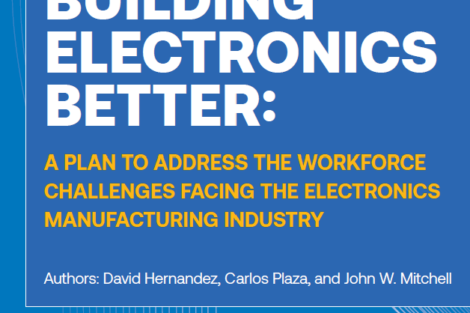Two months have now passed since the EU’s directive on Reduction of Hazardous Substances has became valid, and not everyone appreciates it. Especially the US manufacturing industry is a huge opponent, deeply in doubt if this bill makes sense. The research firm AEM says that within the next five years the US industry alone will have to spend about 30 bn dollar in order to fix compliance issues for exports of electronics in the EU. However, the worldwide industry is involved here: the Chinese deliver what their customers want, the Japanese industry has made “green” electronics a top-down-approach of their executives, and now the TCR Material Testing Laboratory in India offers local manufacturers a RoHS-compliance test service.
The big problem is with the missing preparedness of companies who overlooked that even non-consumer products, initially not subject to RoHS, are exposed to this. The supply chain is changing as component manufacturers modify parts or discontinue delivery. Apparently, many manufacturers thought they or their products will leave the transition almost untouched. They haven’t discussed the implications closely enough with their suppliers, and now there are non-conforming products, and of those that are, companies are unsure if they can provide enough proof.
And there is another problem with the WEEE (Waste of Electrical and Electronic Equipment) directive, creating huge bureaucracy for vendors, ensuring that all their products can be recollected and recycled when lifetime has run out. In every EU member state a pile of documents has to be prepared in the local language, and vendors have to leave a deposit to eventually cover costs. A rich field for lawyers, consultants and others.
Now European legislation is ready to reach out for the next strike: Registration, Evaluation and Authorization of Chemicals (REACH) regulation is underway, having the potential to force the electronics industry to again redesign components in order to avoid the use of toxic chemicals not addressed by RoHS. REACH regulates chemicals in all consumer products. Companies will bear the responsibility for the chemicals in their products and will have to know the impact.
The REACH details have not been finished yet, the bill will come before the EU’s Environment Committee in October, and we can anticipate that it will become law next year. There have been lobbying efforts to urge the EU to soften or eliminate REACH. Representatives from trading partners are requesting to revise the draft, and chemical industry groups also lobbied to cancel the bill or limit its effect.
It can be expected that this legislation will become part of a set of initiatives, changing manufacturing techniques. The cumulative effect of directives may force the industry to incorporate environmental concerns into design and manufacture: RoHS, WEEE, REACH and others such as the EU’s Directive on Energy Using Products or on the Integrated Product Policy and Japan’s Framework for a Recycling Oriented Society are just some examples. Whether or not those directives can save our planet, I don’t know. Just a bit of common sense is necessary to see that there can be no endless growth of industrial production, of people and consumption of resources such as energy, water or air. Even if this view isn’t welcome by many: man’s evolution isn’t based on directives, but rather on awareness.
Share:









